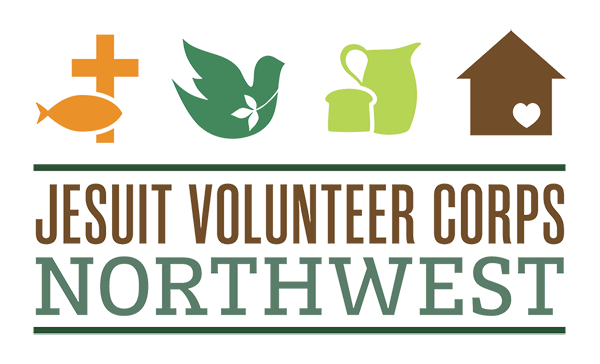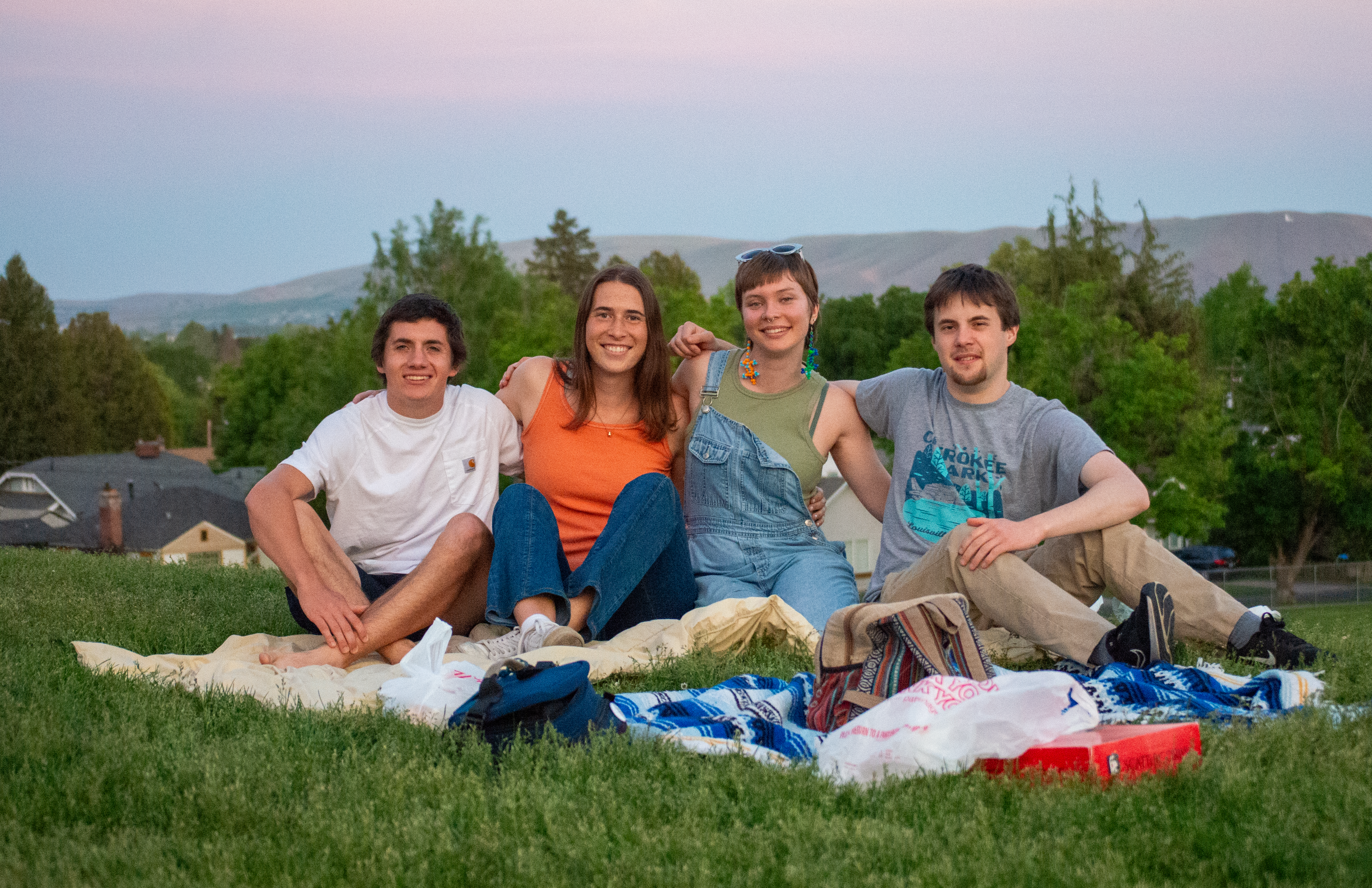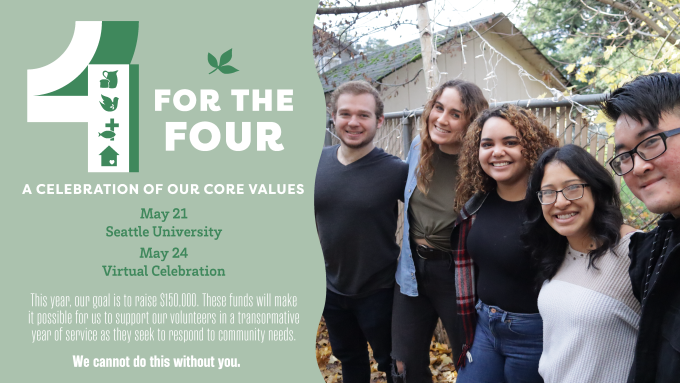Celebrating a Long Legacy in Yakima, WA
This year, Sam Fendig (her/him) often left in the dark to serve at the St. Vincent de Paul Food Pantry while Madeline Joyce (she/her) cris-crossed Washington with the Northwest Justice Project’s Farmworker Unit meeting their clients near the fields. Enya Harris (she/her) accompanied people who were her peers through the challenges of navigating life without stability and shelter. Bill Powers (he/him) built new relationships locally for Cowiche Canyon Conservancy as their first Jesuit Volunteer, while also taking local students hikes in the shrub-steppe habitat.
Service in Yakima is as varied as the Jesuit Volunteers who are called here. In this valley surrounded by hills that go from green to brown with the seasons, a unique community has flourished through every season for the last four decades.
As the Jesuit Volunteer movement became established in its first quarter century, new communities grew curious about inviting Jesuit volunteers. These relationships were not always easy. The first time JVs tried to settle into Yakima, they were labeled as troublemakers who were trying to shake things up. After a short hiatus, Patty Houts-Hussey (she/her, Cornelius, OR, ‘73-74) urged JVC Northwest to try again. This time, JVC Northwest followed the local community’s lead towards where JVs were most needed.
Patty worked in Yakima for Catholic Family & Child Service and had seen many unmet needs as she got to know the area. “Having been a Jesuit Volunteer, I knew there were ways to help alleviate some of this suffering.” Working with the JVC Northwest area director, Matt Fairbank (he/him, Seattle Mercy, WA ‘81-82), they facilitated the arrival of the first four volunteers in 1984: Tom Korcz, Kim Ebert, Linda Rolufs, and Chris Bowlds.
After seeding that first JV community, Matt also settled in Yakima, working for Catholic Family & Child Service and supporting the early JVs informally. Matt never expected to spend most of his life in Yakima, nor did he expect to be an In-Locale Coordinator decades after his own service. But, his family has been an anchor for this community. His partner, Michele, has managed the farmworker unit at the Northwest Justice Project, supervising JVs on the outreach team for decades.
Faith Payson served at Yakima Neighborhood Health Services during the ‘22-23 program year. She was struck by the support that started when JVs arrived at the Greyhound station. “The year continued with various hiking and tubing adventures, movie and game nights, potlucks, and so much more,” she said, “From an outside perspective Yakima may seem like a city with not too much to offer aside from a good amount of breweries and wineries, but when looking from within the Yakima JVC Northwest and Micah Communities, you see a multitude of intergenerational joyful, silly, special, and beautiful moments.” As she completed her year, she felt called to help plan the 40th reunion in part because she wanted to ensure she would be back in a year.





Pictured above: Top row – Tree planting at Casa Rutilio Grande, left: ’23-24 JVs with member of the Board of the Foundation of Mercy, Same JVs planting the tree; Bottom Row – In Locale Coordinator Matt Fairbank (he/him) emceeing the reunion, ’22-23 JVs Faith Payson (she/her) and Danielle Morin (she/her) hugging; large group photo of all of the attendees at the Saturday evening program at the reunion.
In June, more than 140 former volunteers, supporters, and friends returned to Yakima to celebrate 40 years of service. From a softball game to a moving reflection service, generations of Yakima JVs, their families, supporters, and friends reconnected, shared stories, and dreamed of a more just world. The weekend culminated with a tree planting ceremony at Casa Rutilio Grande, the JV house owned by the Foundation of Mercy.
The Mercy family, including the legendary Br. Fred Mercy, S.J., have long supported Jesuit Volunteers and run the local movie theaters in Yakima. From offering JVs free movie tickets, to hosting JVs and supporting the reunion, these 40 years of service would not have been possible without the legacy of the Mercy family through the foundation. As current JVs gently placed the new dogwood tree in the ground, Madeline thanked the assembled community for returning to “Casa G,” a true testament to the strength and depth of this community.
For Matt, the work is far from over and the relevance of Yakima as a locale is only growing. He said, “People don’t know how much they’re craving deep community until they experience it….The sense of isolation and loneliness is not going away. The antidote is depth of connection.”
“The warmth and generosity of this community made Yakima feel like home in no time.” – Enya Harris (she/her) ‘23-24
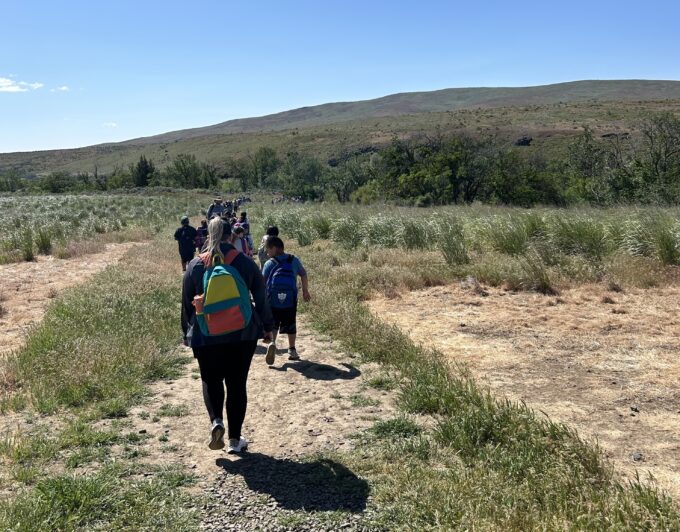
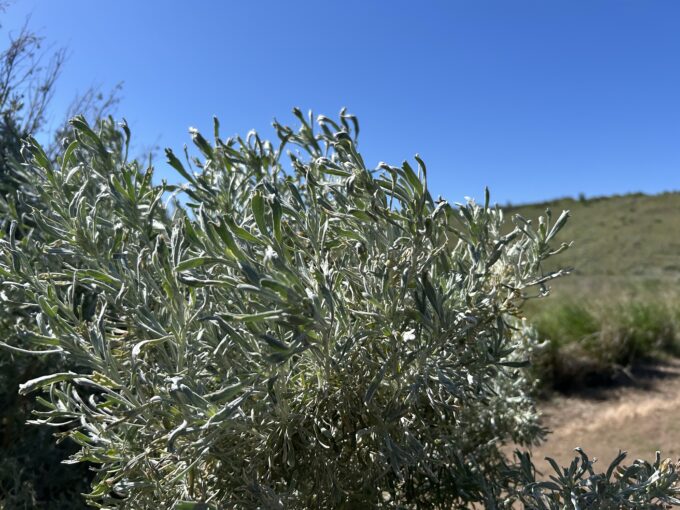
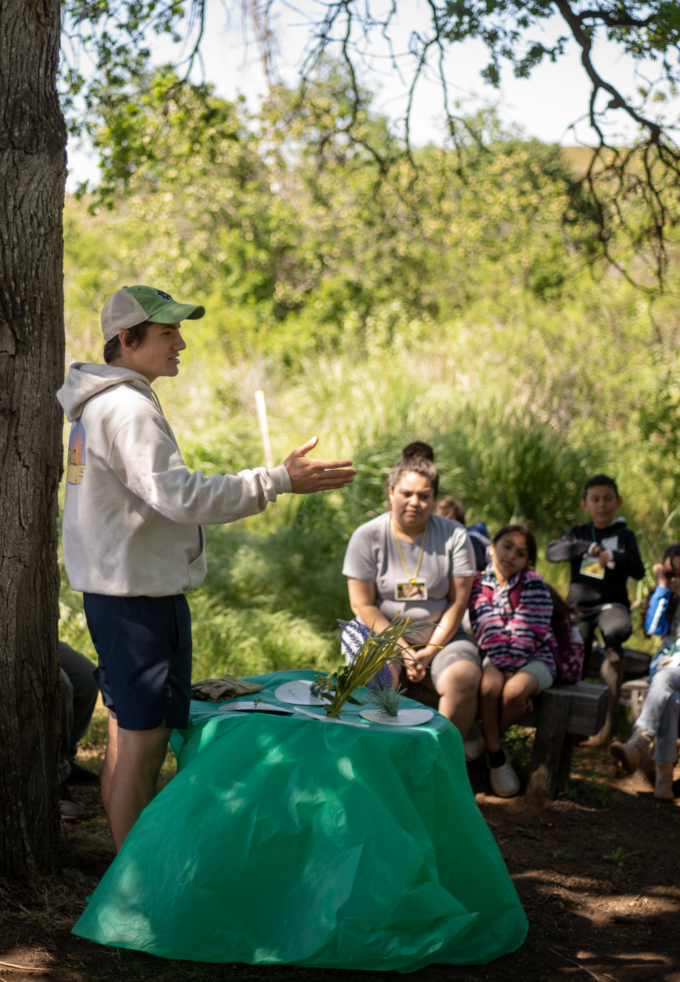
Pictured above: New partner agency Cowiche Canyon Conservancy. Left to right: students headed out for a field trip; native sagebrush important to the shrub steppe ecosystem; ’23-24 JV Bill Powers (he/him) teaching a group on a field trip about native and invasive species.
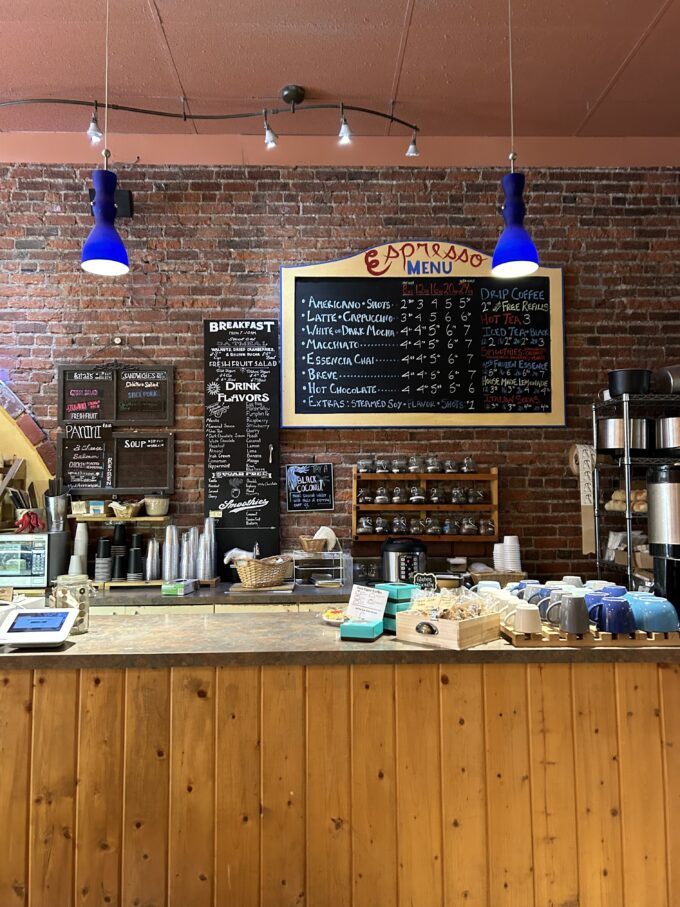
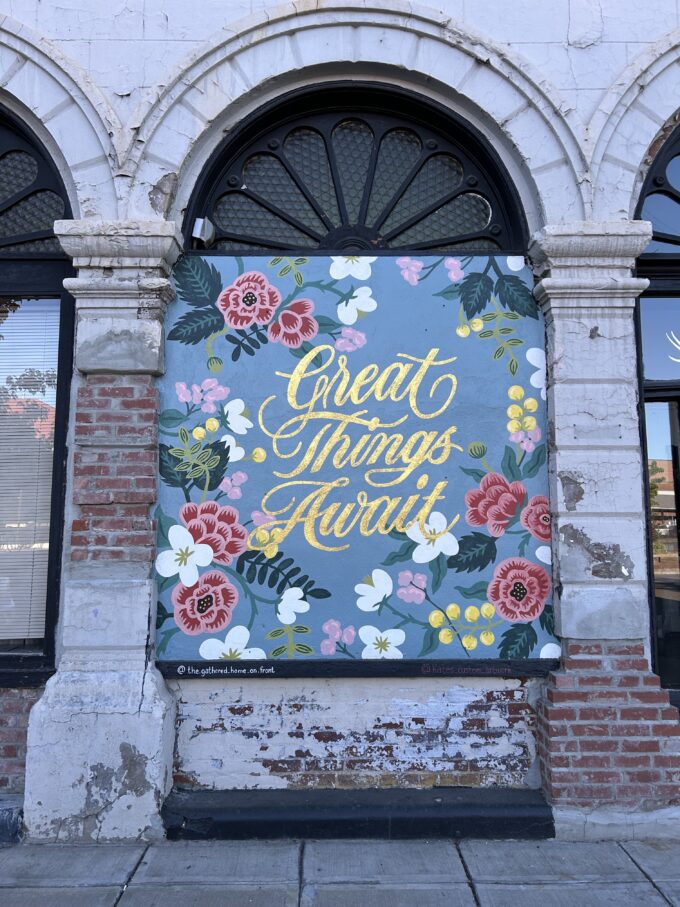
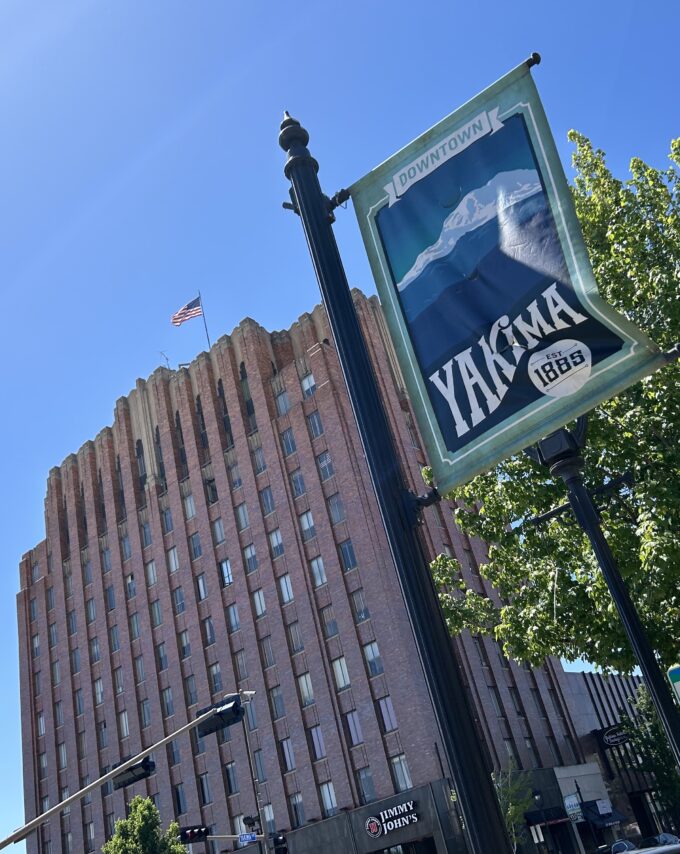
Pictures from around Yakima: left to right – the interior of Essencia, a favorite coffee and bakery near the JV house, a mural that says “Great Things Await” downtown, and the most recognizable building in downtown Yakima.
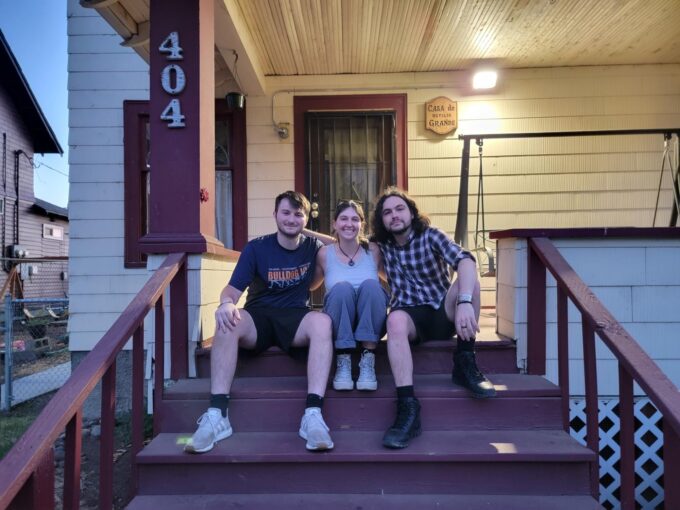
Pictured above: the ’24-25 JVs as they settled into their new home.
Left to right: Scott Esteb (he/him), Helene Boggs (she/her) and Bran Romero (he/him).
